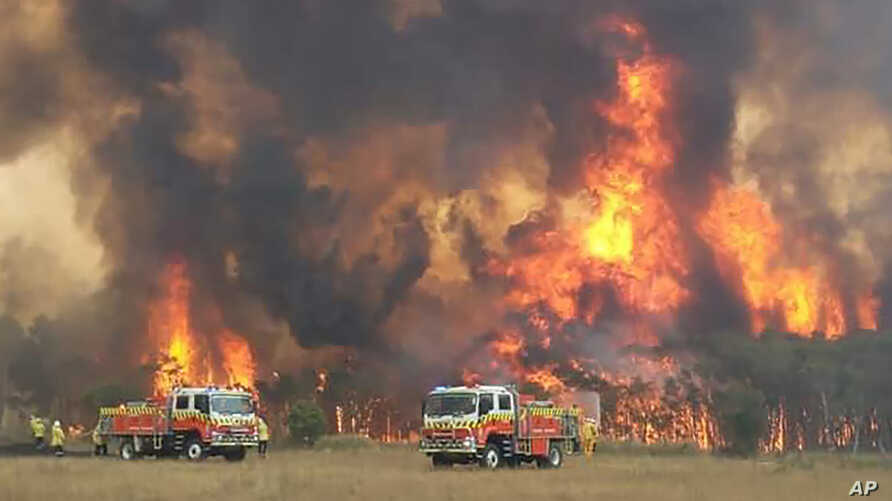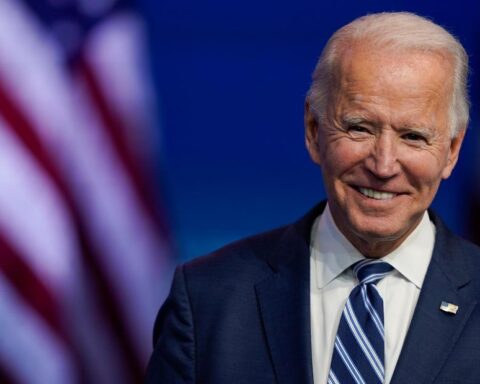Human activities continued to pump out planet-warming gases, just at a slightly lower rate. “You can’t really see a change,” he said.
Plus, cuts achieved through a global pandemic “are not the right way to reduce emissions. No question about that,” added World Resources Institute Director Dan Lashof. “And most of them are potentially quickly reversible as the economy recovers.”
Fundamental changes are needed in the ways the world powers itself, he said.
Stepping up
Some countries announced plans this year to intensify their efforts.
China pledged to generate no net emissions of carbon dioxide or other heat-trapping gases by 2060. As the world’s largest producer of greenhouse gases, Gerrard said the announcement was “the single most important climate policy event of the last year.”
The European Union also upped its climate goals, to a 55% reduction from 1990 levels over the next decade. The bloc intends to be climate-neutral by 2050.
The United States has been moving in the opposite direction under President Donald Trump. His administration has loosened more than 100 environmental regulations, including efficiency rules for vehicles and appliances, emissions from power plants and leakage from oil and gas operations of methane, which is a more powerful greenhouse gas than carbon dioxide.
Trump’s move to withdraw the U.S. from the 2015 Paris agreement to fight climate change took effect the day after the November presidential election.
Changing course
Trump lost that election to former Vice President Joe Biden. Experts expect a dramatic shift on climate policy.
“There’s no question that President-elect Biden is going to do a 180 from what President Trump has done,” Gerrard said.
Biden ran on “the most ambitious and comprehensive climate policy in U.S. history,” Lashof added. The president-elect lists climate change as one of his top four priorities, including a pledge to rejoin the Paris agreement on his first day in office. Many of the environmental rules Trump loosened will likely be tightened again.
The president-elect will likely face a divided Congress, however, which will limit how far he can go to rein in emissions.
States and local governments may go further, as many have in the absence of federal leadership.
This year, California’s governor issued an executive order directing all new vehicles sold by 2035 to be zero-emission.
California is the largest vehicle market in the United States. The move marks “a tremendously significant acceleration of the timeline in the U.S. for transitioning to clean electric vehicles,” Lashof said. “And I think that that move in California will be echoed around the country.”
Money talks
Banks and investors cooled on fossil fuels this year, too. Blackrock, the world’s largest asset manager, said it will put environmental sustainability at the center of its investments. Additionally, all six U.S.-based major banks announced this year that they will not invest in Arctic oil and gas projects.
The U.S. Federal Reserve joined a group of 82 other central banks focusing on climate change. The Commodity Futures Trading Commission, the nation’s commodity market regulator, also called for urgent action.
“The idea that climate change poses a serious threat to the U.S. financial system has totally gone mainstream, and 2020 was really the year that that took hold,” Lashof said.
As leaders convened (virtually) to mark five years since the Paris climate agreement, U.N. Secretary-General Antonio Guterres noted that the world is nowhere near the goals set to stop dangerous global warming.
“The commitments made in Paris were far from enough to get there, and even those commitments are not being met,” he said.
The consequences were ever more obvious, as climate-related disasters continued to pile up this year.
Disastrous
More tropical storms formed in the Atlantic Ocean and Caribbean Sea than ever recorded. Meteorologists ran out of names and had to dip into the Greek alphabet.
Wildfires broke records in the western United States, Australia, the Caribbean and, of all places, Siberia.
A summer heatwave in the Arctic helped push the globe to its hottest or second-hottest year on record.
The world’s fever kept rising in 2020, and scientists say time is running out to bring it down.
VOA



